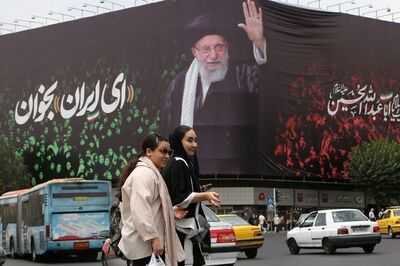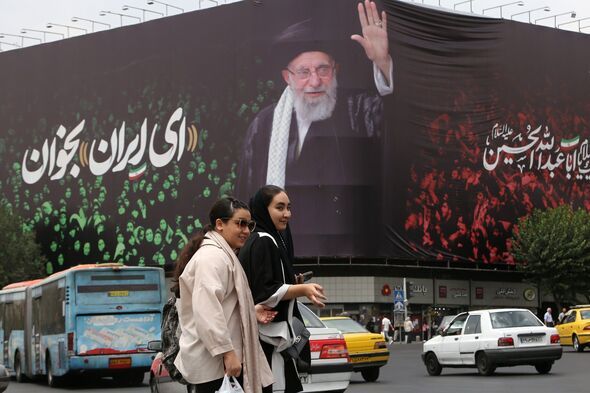

British security services thwarted 15 Iranian plots to murder or kidnap people in the UK. But more funding is needed to ensure MI5's continued success, the UK's intelligence watchdog has warned. Targets included people in media organisations such as the BBC's Persian service, and prominent Jews.
Threats have increased "significantly" since 2022 as the regime in Tehran becomes more insecure due to protests within Iran demanding a change of government. The stark warning was published by Parliament's Intelligence and Security Committee following an investigation into the threat from Iran and the response by the UK. In a hard-hitting report, the committee of MPs and members of the House of Lords said: "Iran uses assassination as an instrument of state policy - targeting dissidents is a high priority."
Iran was not aiming to harm the UK but regarded this country as "collateral damage" as it targeted perceived threats in any part of the world. The inquiry warned: "There have been at least 15 attempts at murder or kidnap against British nationals or UK-based individuals since the beginning of 2022."
These had been "thwarted" by MI5 but the security services could not be expected to cope with the growing level of threat to the UK "without a commensurate increase in resources," the inquiry warned.
Media organisations based in the UK that report on Iran are a key target. The inquiry warned: "MI5 told the Committee that it has seen persistent targeting of Iranian media organisations operating in the UK, primarily Iran International. BBC Persian and Manoto TV - which are broadcast from the UK - are also prominent targets, as they are viewed by Iran as 'deeply undermining of the Iranian regime'."
Tehran has targeted "Jewish individuals of prominence as well", the report said.
Committee chairman Lord Beamish said: "Iran poses a wide-ranging, persistent and unpredictable threat to the UK, UK nationals and UK interests".
His committee recommended that the Government consider whether it was "legally possible and practicable" to proscribe Iran's Islamic Revolutionary Guard Corps (IRGC) as a terrorist organisation and make a full statement to Parliament on the issue.
Ministers have faced calls in recent years to ban the IRGC, but the committee recognised there were "complexities inherent" in such a decision.
Iran had neither developed a nuclear weapon nor decided to produce one by August 2023, but had taken steps towards that goal in recent years, the inquiry found. Israel launched a military campaign designed to destroy Iran's nuclear capability earlier this year, and US President Donald Trump ordered strikes on three nuclear facilities in June.
The inquiry did not look into the attack by Iran's ally Hamas on Israel on October 7 2023, which was followed by an ongoing Israeli assault on Hamas-ruled Gaza. But the report said: "We do note that Iran has historically provided Hamas with weapons, cyber assistance and financial support."
A UK Government spokesperson said: "This independent report demonstrates the vital work our security and intelligence agencies do countering threats posed by states such as Iran.
"This Government will take action wherever necessary to protect national security, which is a foundation of our plan for change.
"We have already placed Iran on the enhanced tier of the foreign influence registration scheme and introduced further sanctions against individuals and entities linked to Iran, bringing the total number of sanctions to 450.
"We thank the committee for its diligent work and will respond fully in due course."